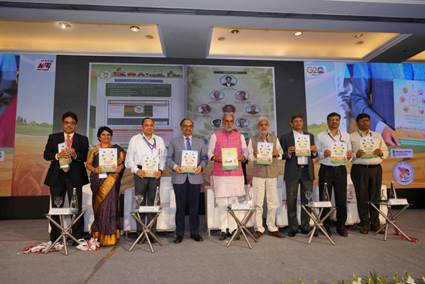About 1 lakh MT of biomass has been co-fired by more than 41 thermal power stations, which is expected to increase further

The Biomass Co-firing Policy is an important step towards reducing emissions from the power sector, said Krishan Pal Gurjar, Minister of State for Power & Heavy Industries speaking at the National Conference on Biomass “3P-Pellet to Power to Prosperity” in New Delhi under the aegis of National Mission on Use of Biomass in Thermal Power Plants (SAMARTH) and National Power Training Institute (NPTI).
Gurjar said that the conference was a great initiative to bring all the stakeholders on a common platform and will benefit everyone from farmers to pellet manufacturers to thermal power plants besides helping in reduction of pollution especially in the NCR region caused by stubble burning during the winter season.
“India had already achieved the non-fossil based generation capacity targets of COP ’21, 9 years ahead of the 2030 deadline. The Prime Minister has committed to cut India’s emissions to net zero by 2070 at the COP '26. India is taking a number of steps for promoting Green Energy,” said Gurjar.
The conference was aimed at fostering an enabling environment to boost co-firing of biomass pellets in thermal power plants in India as well as to provide a common platform for all the stakeholders in the field to share their knowledge and experience, to strengthen the biomass supply ecosystem.
"The government was making serious efforts to promote the biomass pellet manufacturing sector. So far about 1 lakh MT of biomass has been co-fired by more than 41 thermal power stations, which is expected to increase further," added Gurjar.
Alok Kumar, Secretary, Ministry of Power appreciated the work done by the National Mission on Use of Biomass in Thermal Power Plants (SAMARTH).
He said that a lot of work needed to be done as the competing fuels had a long history of growth and a well-established strong supply chain.
He urged the state regulatory bodies, state generation companies and IPPs to promote the use of biomass pellets saying that despite multiple advantages, there was an inertia on part of these bodies to push for greater use of biomass pellets.
Kumar added that the ministry will soon write to state regulatory bodies in this regard. The power secretary also emphasized upon the need to ensure an intermediary agency as a bridge for efficient supply-demand linkages between pellet supplier/manufactures and thermal power stations, which are biomass pellet users.
The conference was attended by nearly 300 persons drawn from ministries, regulatory bodies, financial institutions, thermal power plants, pellet manufacturers, entrepreneurs, OEMs, IITs, agriculture universities, FPOs, CBBOs, farmer organizations, etc.
The conversion of biomass agro residue into pellets and co-firing them in thermal power plants is expected to not only save the environment from harmful effects of stubble burning but also contribute towards the reduction of country’s dependence on imported coal in electricity generation, and increase the earning potential of farmers and small entrepreneurs.
Subscribe to our newsletter & stay updated.